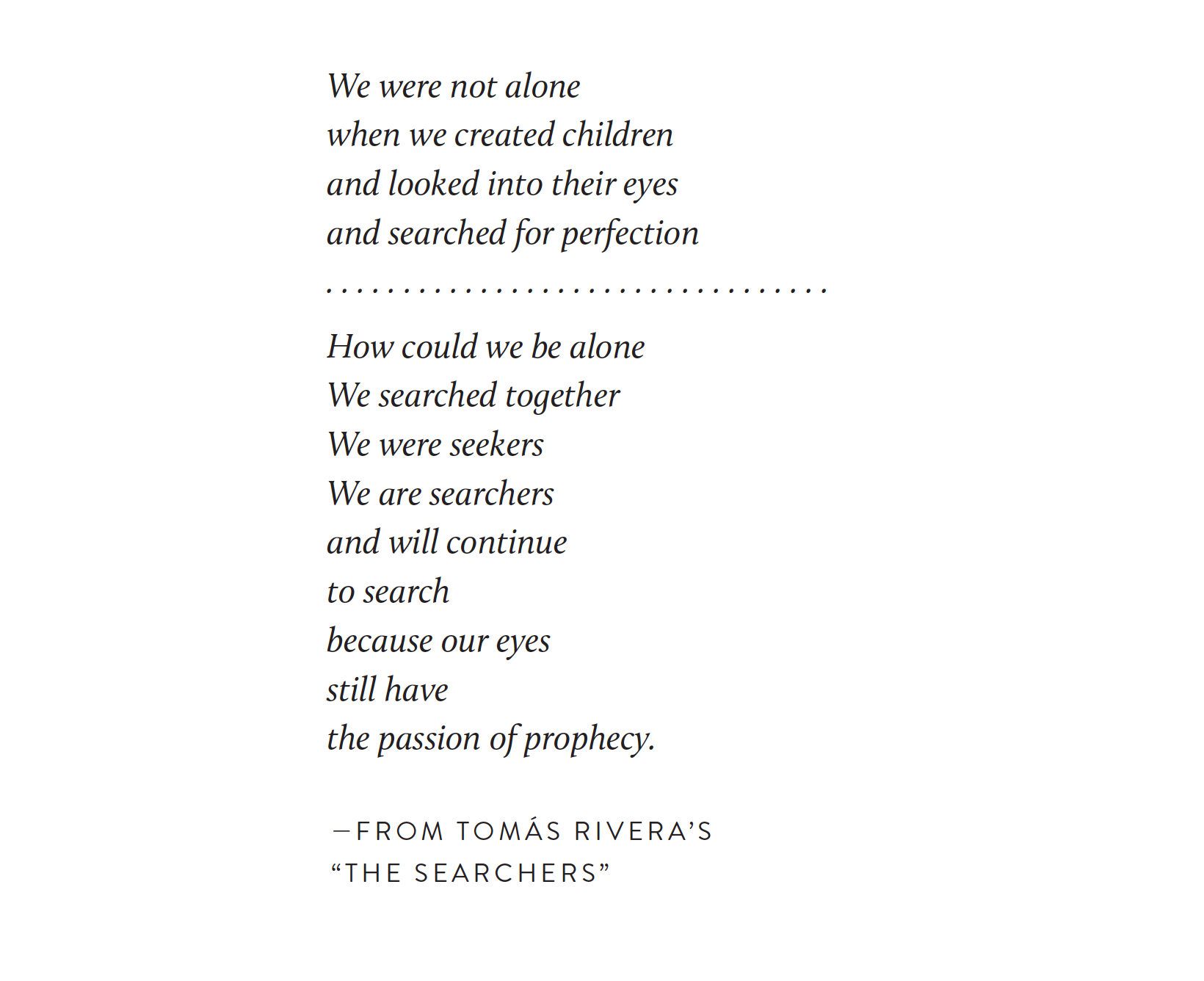Epigraph Explanation
Here’s the epigraph for ‘The Book of Wanderers’:
Growing up in Texas, I was never given any books by Latinx writers in school, not even Rolando Hinojosa, Americo Paredes, or Sandra Cisneros. I’d always wanted to be a writer in some sense, but I didn’t have the ideations of what that meant. So while Tomás Rivera’s work had been published, lauded, and stapled to the Mexican American literary canon, his existence didn’t even come to my attention until my undergraduate studies in a Mexican American literature course. In other words, my education system didn’t give me a language for my creative growth until I was around 19 or 20.
The assigned book was ‘…y no se lo trago la tierra’ / ‘…and the earth did not devour him’ translated by Evangelina Vigil-Piñón. It changed me as someone looking into becoming a whole-ass writer. Its fragmentary nature, poetic language, and focus on migrant workers revealed a literary conscious within me that I couldn’t see before. It is a book about an oppressed people surviving a shared experience: capitalism, colonialism, whiteness, etc. In a way, the characters are both alone and not: alone in their idiosyncrasies and sadness but together in work and mutual aid. This was never shown to me in all 18 years of schooling in Texas. I now know why.
I devoured as many of Tomás Rivera’s work as I could, including his book of collected poetry ‘The Searchers’ edited by Julián Olivares, published a year after my birth. In college and high school, I was made to read Homer’s ‘Iliad’ and ‘The Odyssey’, epic poems about war, familial curses, home, shared mythologies, etc. What the majority of my Texas educators never told me is that we had our very own writers doing this work too. ‘The Searchers’, the eponymous poem by Rivera, is an epic poem about migrant workers and their journey throughout the Southwest following work assignments and harvesting seasons. This mirrors Rivera’s own life as his family did the same while also attending school whenever he could.
More specifically, the epigraph takes lines from ‘The Searchers’ that illustrates a running theme throughout his work: searching. A searching for love, peace, wholeness, a home. The great tragedy within Rivera’s work is that some people never find those things. Thus, the only thing to hand off to the next generation sometimes is that search for ‘perfection.’ It is through a shared search that culminates in community, family, curses and love. What the poem is about, in many ways, is defining a form of humanity, dignity and love in a people, where America does not want those things found. What’s even more startling, for me, is that these themes continue to this day, even in a Mexican-Salvadoran American son of immigrants like myself.
That’s kind of what I want my book to be about: wanderers in search of perfection and finding it, however little or as much, in a world that doesn’t want them to have it at all. Thank you, Tomás Rivera.
You can order his collected works here from Arte Público Press.
You can pre-order my book here from University of Arizona Press.
